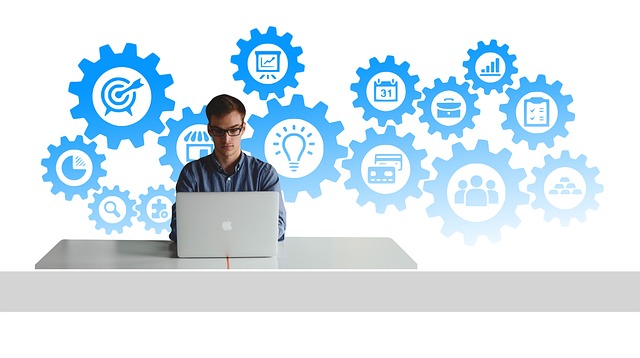Table of Contents
Where to Find Freelance Gigs and Jobs
If you’re on the lookout for freelance gigs and jobs but feeling a bit overwhelmed by the vast sea of options out there, fret not! There are numerous avenues where you can uncover exciting opportunities to showcase your skills and talents. One fantastic place to start is by exploring popular websites dedicated to connecting freelancers with clients in need of their services. These platforms act as virtual marketplaces where you can browse through job listings, submit proposals, and ultimately secure gigs that align with your expertise. Keep an eye on well-known websites like Upwork, Freelancer, and Fiverr, where a myriad of projects across various industries are just waiting for the right freelancer to swoop in and take charge.
Another avenue to explore when hunting for freelance work is to seek out industry-specific job boards. These specialized platforms cater to freelancers with niche skills and interests, making it easier to find gigs that truly speak to your passions. Whether you’re a writer, graphic designer, photographer, virtual assistant, web developer, or marketing guru, there are job boards tailored to your field of expertise. By immersing yourself in these targeted communities, you not only increase your chances of landing relevant gigs but also open yourself up to networking opportunities and collaborations with like-minded professionals. So, don’t be afraid to venture beyond the generic job search portals and delve into the world of specialized job boards to uncover hidden gems that could kickstart your freelance career on a high note!
Websites for Finding Freelance Work
Looking for freelance work can feel like diving headfirst into a sea of opportunities and uncertainties. The digital realm offers a myriad of platforms where freelancers can showcase their skills and connect with potential clients. With just a few clicks, you can explore a world of possibilities and find the perfect gig that matches your expertise and interests.
Navigating websites dedicated to freelance work can be both exhilarating and overwhelming. You’ll encounter a variety of job postings ranging from graphic design projects to virtual assistant positions. It’s like stepping into a virtual marketplace where creativity and innovation collide, presenting you with a chance to carve out your niche in the ever-evolving freelance landscape.
Best Platforms for Freelancers
Tired of hunting for freelance gigs? Check out these top platforms that can help you land your next job. With a plethora of opportunities, these websites cater to freelancers from all walks of life. Whether you’re a writer, designer, developer, or marketer, there’s something for everyone in the gig economy.
From the high-paced world of Upwork to the creative hub of Fiverr, these platforms offer a smorgasbord of projects waiting for your magic touch. Freelancers swear by the seamless interface and diverse range of clients, making it easy to find your niche and showcase your skills. So why wait? Dive into these platforms and unlock a world of freelance possibilities!
How to Stand Out in the Gig Economy
Standing out in the gig economy can be a real challenge with the sea of talent out there. It’s like being a small fish in a big pond and trying to catch the eye of the bigger fish. But fear not, there are strategies you can employ to make yourself shine brighter than the rest. One key approach is to showcase your unique skills and personality. Don’t be afraid to let your authenticity shine through in your work and interactions. Clients are not just looking for skills; they want someone who can bring a personal touch and a fresh perspective to the table.
Another way to set yourself apart is by building a strong online presence. Having a professional and engaging website or portfolio that showcases your past work and testimonials can give potential clients a glimpse into what you can offer. Utilize social media platforms to create a strong personal brand and engage with your audience. Consistency is key here, so make sure your online presence reflects your expertise and style. By putting yourself out there and demonstrating your unique value proposition, you can carve out your own space in the competitive gig economy.
Top Freelance Job Boards
As a freelancer, finding the right job board can be a game-changer. Your journey towards landing gigs that match your skills and interests can feel overwhelming at times. With a plethora of options available, it’s essential to choose wisely. Some popular job boards like Upwork, Freelancer, and Fiverr offer a wide range of projects for freelancers across various industries.
Navigating through these platforms might feel like stepping into a bustling marketplace where every opportunity seems both exciting and intimidating. However, taking the time to explore and understand each job board’s unique features can help you find the perfect match for your freelance career. Keep an eye out for job boards specialized in niches like creative writing, graphic design, or web development that cater to your specific talents and preferences.
Navigating Freelance Marketplaces
Navigating the vast expanse of freelance marketplaces can feel like diving into a bustling marketplace with vendors shouting for attention. With platforms like Upwork, Freelancer, and Fiverr, it’s easy to get lost in the sea of opportunities. Many freelancers find themselves overwhelmed by the sheer volume of gigs available, wondering how to sift through them to find the ones that align with their skills and interests. Taking the time to browse different marketplaces and understand their unique features can help freelancers make informed decisions about where to focus their efforts.
The key to successfully navigating freelance marketplaces lies in finding the right balance between casting a wide net and honing in on specific niches. While it may be tempting to apply to every gig that catches your eye, taking a more strategic approach can lead to greater success in the long run. By identifying your strengths, setting clear goals, and targeting gigs that align with your expertise, you can carve out a niche for yourself in the competitive freelance landscape.
Freelance Writing Opportunities
Are you a wordsmith at heart, ready to turn your passion for writing into a thriving freelance career? Well, you’re in luck because the world of freelance writing is a vast sea of opportunities just waiting for your creative flair! From blog posts to articles, website content to social media copy, the demand for talented writers is ever-growing in today’s digital age.
As a freelance writer, you have the flexibility to choose projects that resonate with you. Whether you are an expert in travel writing, tech reviews, or health and wellness content, there is a niche out there waiting for your unique voice to shine. With a plethora of online platforms and job boards dedicated to connecting writers with clients, the possibilities are endless. So, grab your laptop, cozy up with a cup of coffee, and start exploring the world of freelance writing – your next gig may be just a click away!
Graphic Design Gigs to Consider
If you’re a whiz with visuals and love playing around with colors and shapes, graphic design gigs could be right up your alley! These gigs offer a creative outlet where you can let your imagination run wild while earning a living. From designing logos to creating marketing materials, the possibilities are endless in the world of graphic design.
One popular avenue for graphic designers is working on branding projects for businesses. This involves creating cohesive visual identities that resonate with a company’s target audience. Additionally, many companies need help with social media graphics, website design, and promotional materials, providing a plethora of opportunities for graphic designers to showcase their skills and make a meaningful impact.
Freelance Photography Jobs
So, you’ve got a passion for capturing moments through your lens and want to turn that love into some freelance photography gigs? Well, you’re in luck because the world of freelancing offers a plethora of opportunities for talented photographers like yourself. Whether you specialize in portrait photography, event coverage, or product shots, there’s a demand out there waiting for your unique eye to meet it.
With the rise of social media and online businesses, the need for high-quality visuals has never been greater. Companies and individuals are constantly on the lookout for talented freelance photographers who can bring their visions to life. So, don’t be shy to showcase your portfolio and reach out to potential clients – you never know where your next gig might come from!
Virtual Assistant Positions Available
Ever felt like you could juggle a million things at once, all while keeping a cool head? Being a virtual assistant might just be up your alley. These positions are like the ultimate multitasking challenge where you get to be someone’s right-hand person without actually being in the same room.
Picture this: you could be scheduling appointments one minute, researching the latest market trends the next, and then replying to emails like a pro in between. Virtual assistant gigs are all about being the ultimate organizational ninja while helping businesses run smoothly. So, if you’re ready to be the superhero behind the scenes, these positions might just be your calling.
Freelance Web Development Opportunities
Are you a web wizard on the hunt for exciting freelance projects? Well, you’re in luck because there’s a treasure trove of web development opportunities waiting for you to explore. From crafting sleek e-commerce sites to designing dynamic interactive interfaces, the world of freelance web development is bursting with possibilities.
Imagine yourself diving into a sea of coding challenges, where each project brings a new wave of creativity and problem-solving. Whether you specialize in front-end magic or back-end wizardry, there’s a niche for every web developer to make their mark. So roll up your sleeves, fire up your favorite code editor, and get ready to embark on a thrilling journey through the ever-evolving landscape of freelance web development!
• As a freelance web developer, you have the freedom to choose projects that align with your interests and skills
• You can work with clients from diverse industries, allowing you to gain valuable experience and expand your portfolio
• Freelancing offers flexibility in terms of working hours and location, giving you the opportunity to create a work-life balance that suits you
• The demand for skilled web developers is constantly growing, ensuring a steady stream of projects for freelancers
• Networking with other professionals in the field can open doors to new opportunities and collaborations
Creative Freelance Jobs
Are you a creative soul looking for freelance gigs that allow you to express your artistic flair? There’s a plethora of opportunities out there just waiting for your unique touch. From designing eye-catching logos to crafting captivating illustrations, the world of creative freelance jobs is vast and exciting.
With your artistic skills, you can delve into projects like creating engaging social media graphics or designing visually stunning websites. The beauty of creative freelance work is that you have the freedom to let your imagination run wild and showcase your talent in various ways. Whether you’re a graphic designer, illustrator, or multimedia artist, there’s no shortage of projects that will allow you to bring your creative visions to life.
Freelance Marketing and Social Media Gigs
In the bustling world of freelance gigs, marketing and social media roles offer a vibrant playground for those with a knack for creative communication. These gigs range from crafting engaging social media posts to strategizing digital marketing campaigns that captivate audiences. If you’re a storyteller at heart or have a flair for creating viral content, then freelancing in marketing and social media could be your calling.
Navigating the realm of freelance marketing and social media gigs may seem like entering a maze at first, but fear not! With platforms like Upwork, Fiverr, and Freelancer, opportunities abound for freelancers to showcase their skills and connect with clients seeking their expertise. Remember, authenticity and a unique voice are key in standing out among the sea of freelancers in this bustling arena. So, if you’re ready to dive into the dynamic world of marketing and social media gigs, sharpen those creative instincts and get ready to make some digital waves!
Freelance Consulting Roles
When it comes to freelance consulting roles, envision yourself as a trusted advisor in your field, ready to share your expertise with clients seeking guidance. Whether you specialize in marketing strategies, financial planning, or HR management, there’s a diverse range of opportunities waiting for you in the freelance consulting realm. Embrace the flexibility and autonomy that comes with being a consultant, allowing you to work on projects that align with your passions and skills.
One of the perks of freelance consulting is the chance to collaborate with a variety of clients, each presenting unique challenges and opportunities for growth. As a consultant, you have the chance to immerse yourself in different industries, learning from every project and expanding your knowledge base. Embrace the learning curve that comes with each new client, adapting your strategies and recommendations to suit their specific needs. Emphasize the value you bring to the table as a consultant, showcasing your problem-solving skills and ability to offer innovative solutions.
Tips for Success as a Freelancer
Starting off as a freelancer can feel like stepping into a labyrinth without a map. You might be juggling multiple projects, dealing with unpredictable clients, and trying to hit deadlines all at once. It’s okay to feel overwhelmed at times, but remember that every seasoned freelancer has been in your shoes before.
One key tip for success is to prioritize organization. Keep track of your tasks, deadlines, and client communications diligently. Utilize tools like project management software or a good old-fashioned planner to stay on top of your workload. Additionally, don’t hesitate to set clear boundaries with clients regarding scope, revisions, and communication to maintain a healthy work-life balance.


